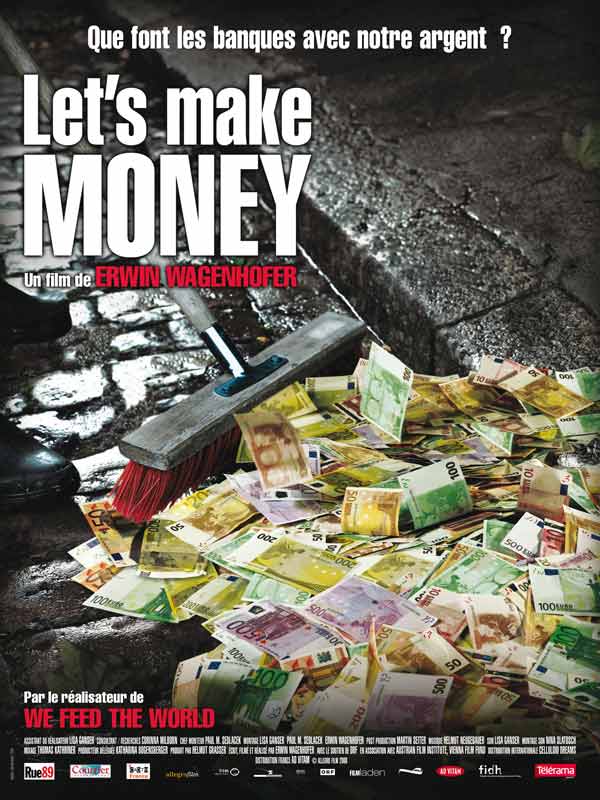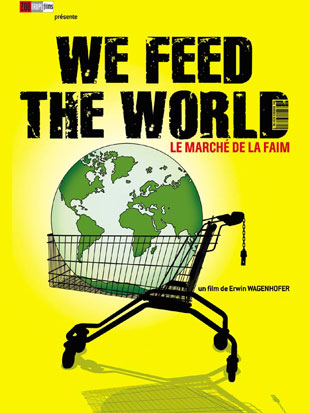[center][large]Let?s Make Money[/large]
VOSTFR[/center]

[justify]Réalisé avant la crise mondiale, Let's Make Money dénonce avec un ton implacable les dérives du néolibéralisme poussé à l'extrême. Déréglementation, libéralisation à outrance, évasions fiscales, avidité, cupidité, le réalisateur autrichien Erwin Wagenhofer, auteur de We Feed the World - Le Marché de la faim sur les dérives de l'industrie agroalimentaire, reprend ici son réquisitoire contre une mondialisation déshumanisante et aliénante.
Le film suit notre argent à la trace dans le système financier mondial. Ce documentaire impressionnant est le tout premier film à démonter les bases du système libéral et ses conséquences humaines, démographiques et écologiques.[/justify]
[center]Let s make money - partie 1.avi (699.51 MB)
[large][/large]
Let s make money - partie 2.avi (333.07 MB)
[large][/large][/center]
[---]

[justify]Most of us don?t know where their money is. However, one thing is for certain, it?s is not in the bank to which we entrusted it. The bank and our money is already a part of the cycle of the global money market.
Let?s Make Money is an anti-capitalist Austrian documentary by Erwin Wagenhofer released in 2008. It is about aspects of the development of the world wide financial system, focusing on how elitists economically exploit the rest of society, especially in the developing world, but also in western nations.
The film starts by tracking the hypothetical savings of a typical depositor as they move around the global system, often causing exploitation as various financial agents try to produce high returns. There are several interviews with investment managers, politicians, economists as well as homeless people and workers.[/justify]
[center]Let s Make Money 1-2.avi (698.11 MB)
Let s Make Money 2-2.avi (697.49 MB)[/center]
